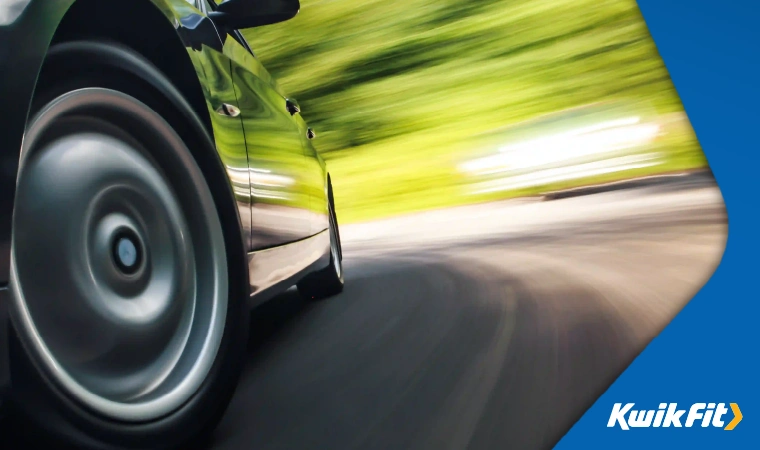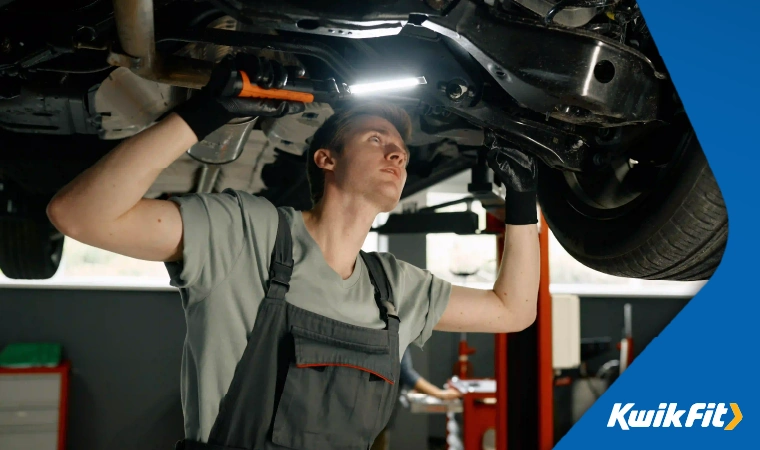How to Tell If Your Brake Caliper is Stuck
Jack Dreyer | Monday 4th September 2023 12:00pm

If your carís not driving as it should do - whether itís got less power or is pulling to one side - then you may have a seized brake caliper. Driving for any length of time with seized calipers can open many cans of worms when it comes to damage and repairs ó so itís best to sort it before itís too late.
But what are some of the signs that a brake caliper has seized? Read on to find out.
1. Sluggish car
One of the main ways youíll be able to tell that a brake caliper is stuck is if your car takes surprisingly long to get going. Imagine trying to pull off with the handbrake half-lifted. If youíve done this before, then youíll know that the first thing that comes to mind is that the engine isnít working well.
Providing allís well with your engine and your handbrake is lifted, thereís a good chance the problem lies in your brakes.
2. Car pulling to one side
Depending on which caliper is stuck, your car may pull to one side or the other. If youíre driving on a straight, level road and seem to need to keep returning the steering wheel to centre ó then itís wise to take your car for an inspection generally, but itís likely to be a problem with either your brakes or wheel alignment and tracking.

3. Wheels & alloy hubcaps getting really hot
Brakes slow your car down by clamping onto your brake discs. This, through creating enough friction, takes all the energy out of the rotating wheels and converts it to sound and heat. When working normally, your brake pads & calipers have a chance to cool down when the brakes arenít engaged. But if the caliperís seized, then the brakes will be partially engaged excessively. This may not noticeably pull your car to one side, but you might notice how hot one particular wheel is getting.
In the most serious cases, this can actually cause a fire ó so itís important to not continue driving if you notice that your wheel or wheels are getting excessively hot. You can find more information about serious brake problems here.
4. Grinding noises
As you can imagine, the brakes constantly clamping to the brake discs usually results in a consistent grinding sound while driving. If youíre noticing any of the problems above, then try driving slowly with the windows down to see if you can hear any noticeable grinding sounds.
If you can, thatís a pretty good indicator that the problem is indeed with your brakes. Make sure you head to your local garage to get on top of the issue before it causes unnecessary, costly damage.

What causes brake caliper seizing?
A huge number of things can lead to brake calipers actually seizing up. Most of the time, seizing happens for reasons such as:
- Corrosion from long periods of inactivity (with the brakes engaged)
- Lack of lubrication
- Or build-up of grime and debris
IIn some cases, calipers can actually seize through improper installation ó which is why you should trust the experts at your local Kwik Fit when it comes to your brakes.
Trustworthy brake repairs at Kwik Fit
Our technicians are fully trained to work on brakes, ensuring that you stay safe on the road. Trust the experts, trust Kwik Fit ó get in touch with your local Kwik Fit Centre to book a free brake inspection.
Any facts, figures and prices shown in our blog articles are correct at time of publication.
Featured Articles
Is it Illegal to Drive With One Headlight?
Saturday 19th July 2025
Wondering if itís illegal to drive with one headlight? Learn about the safety risks and penalties of illegal blown bulbs and why you should fix them promptly.
Air Con in EVs & Hybrids: Experts Answer Your Questions
Monday 30th June 2025
Does air con drain EV batteries? Can you use the air con while charging an electric car? Find out the answers to these questions & more from Kwik Fitís experts.
Why Is Your Car Making a Noise? Fixes & Tips
Friday 13th June 2025
When your car starts making unexpected noises, it can certainly be quite disconcerting; it may be nothing to worry about, but hereís what you need to know.









